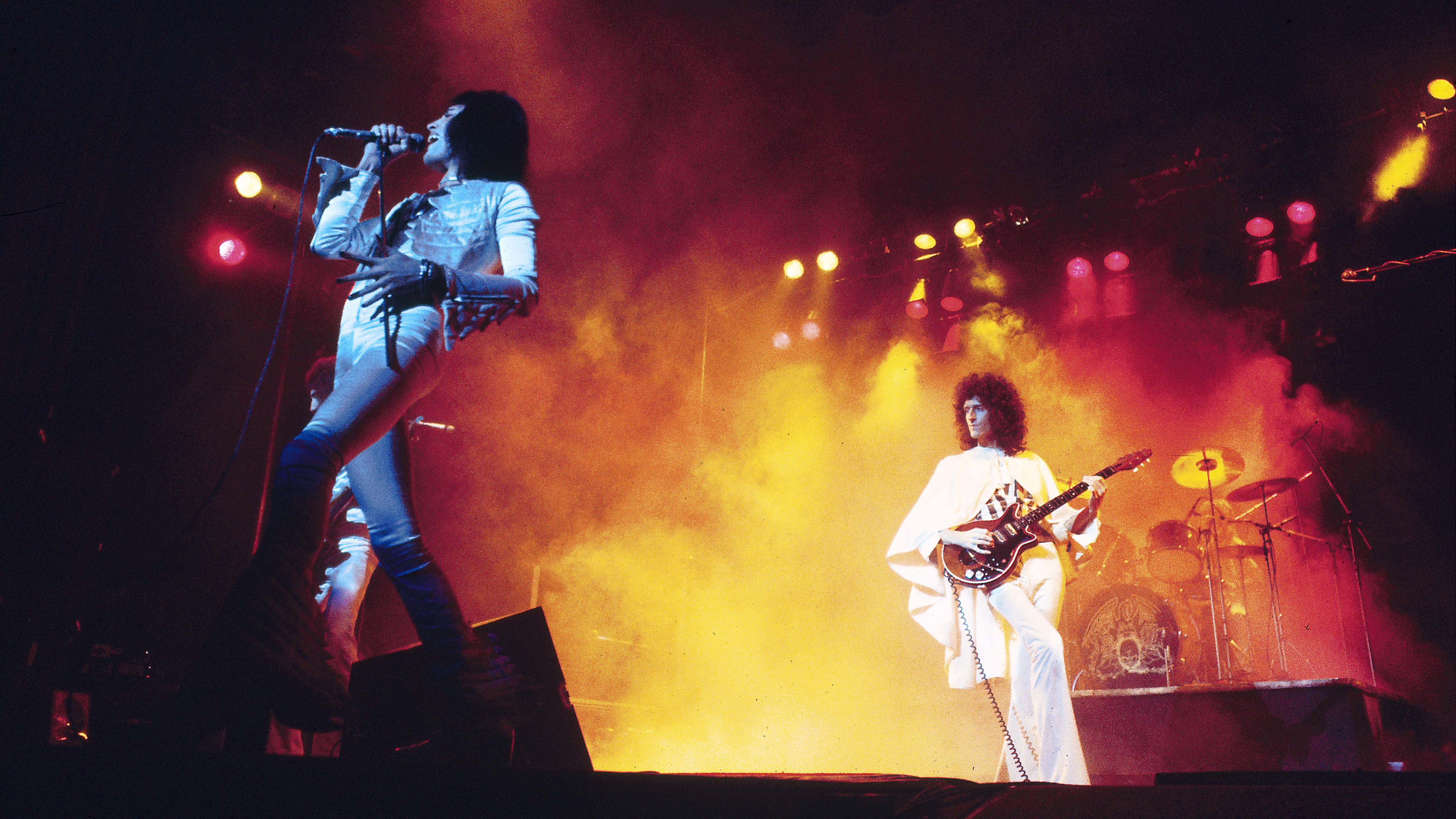
"Queen was very much more than what you hear on the Greatest Hits album," Brian May tells Vulture.com in a new interview. Indeed! We all love the anthems but some of Queen's most fascinating music lies deeper in the catalogue – we love a bit of Ogre Battle from Queen II ourselves, but May's pick for an overlooked gem comes from a later album.
"All those billions of streams are from the Greatest Hits," adds the grand wielder of the Red Special. "That’s a separate thing. We have a whole career of creating music in the album format. There’s a lot of depth there, which you don’t generally hear unless you go into it as a devotee, if you like."

We always thought they were both major works, but Bohemian Rhapsody got picked up by radio, and it became the flagship song
That means there's a lot of material that May would have liked to have seen get more attention. He's certainly not bitter about it, but there's one song that highlights in particular – and it sits on 1975's A Night At The Opera alongside Bohemian Rhapsody, You're My Best Friend and Love Of My Life.
"There’s a million things I wish, in a sense, had gotten a lot of attention. I suppose The Prophet’s Song prevails the most," May reveals. "It was the antithesis of Bohemian Rhapsody and on the same album. . Only a few people who are very into the depths of Queen through the years are really aware of what The Prophet’s Song means.
"I’m not going to say I’m unhappy because it’s okay. It really is," he adds. "The people who are into that stuff are very into it. They understand it, and they get it. They would regard The Prophet’s Song as much of an encyclopedia of Queen as Bohemian Rhapsody was on the other side. That isn’t anywhere near a billion streams. It just sits on an album there, and people who really want to get into Queen are aware of what that was and what it is."
Dedicated Queen fans hold the Brian May-penned song in high esteem – the boldness of its acapella vocal harmony breakdown part overshadows any of that craft on Bohemian Rhapsody. Its ambitious complexity suggests the band would have swerved from playing the song live. But this is Queen - and Freddie pulled off The Prophet's Song's mid-section using vocal delay here at Hyde Park in 1976. It reminds us again just how progressive Queen were in their approach to rock.
This 1977 Earl's Court footage is a wonderful showcase too – developing the vocal effects further. A full-blown vocal solo in a rock song.
Get the MusicRadar Newsletter
Want all the hottest music and gear news, reviews, deals, features and more, direct to your inbox? Sign up here.
"But by the time we get to A Night At The Opera, it’s a staple thing," May told Total Guitar about the use of delay. "There’s a lot of it in that album, and we’re doing it with the vocals as well in The Prophet’s Song – getting Freddie in there with the same kind of gear and encouraging him to experiment as well.”
It’s a nice thing for them to discover and get excited about
For newcomers to Queen, The Prophet's Song is a treasure waiting to be discovered.
“With The Prophet’s Song, it’s kind of a light that got hidden under a bushel," May told Total Guitar. "But the positive is that it’s a deep side of Queen, which people get into when they start exploring. It’s a nice thing for them to discover and get excited about."
But for a lot of people, Queen are defined by their anthems, and May clearly understands this – and never loses his appreciation.
"I’m getting all esoteric about the deep tracks of Queen, but you can’t knock having a hit," he admits to Vulture. "There’s an old saying from Tin Pan Alley, which goes, 'A hit is a hit is a hit.' You can’t argue with the fact that a hit gets to people, and it becomes embedded in their lives forever. Whenever they hear the strains of that song, a whole flood of emotions will come back into their body. That’s a precious thing.
"We’re so privileged to have so many hits, which are bound up with peoples’ lives and always will be," he concludes. "We can play a concert and play the first couple of notes of any song and feel that emotional response right away. It’s amazing. What a wonderful thing to have in your quiver of arrows."

Rob is the Reviews Editor for GuitarWorld.com and MusicRadar guitars, so spends most of his waking hours (and beyond) thinking about and trying the latest gear while making sure our reviews team is giving you thorough and honest tests of it. He's worked for guitar mags and sites as a writer and editor for nearly 20 years but still winces at the thought of restringing anything with a Floyd Rose.
“Every note counts and fits perfectly”: Kirk Hammett names his best Metallica solo – and no, it’s not One or Master Of Puppets
“I can write anything... Just tell me what you want. You want death metal in C? Okay, here it is. A little country and western? Reggae, blues, whatever”: Yngwie Malmsteen on classical epiphanies, modern art and why he embraces the cliff edge









